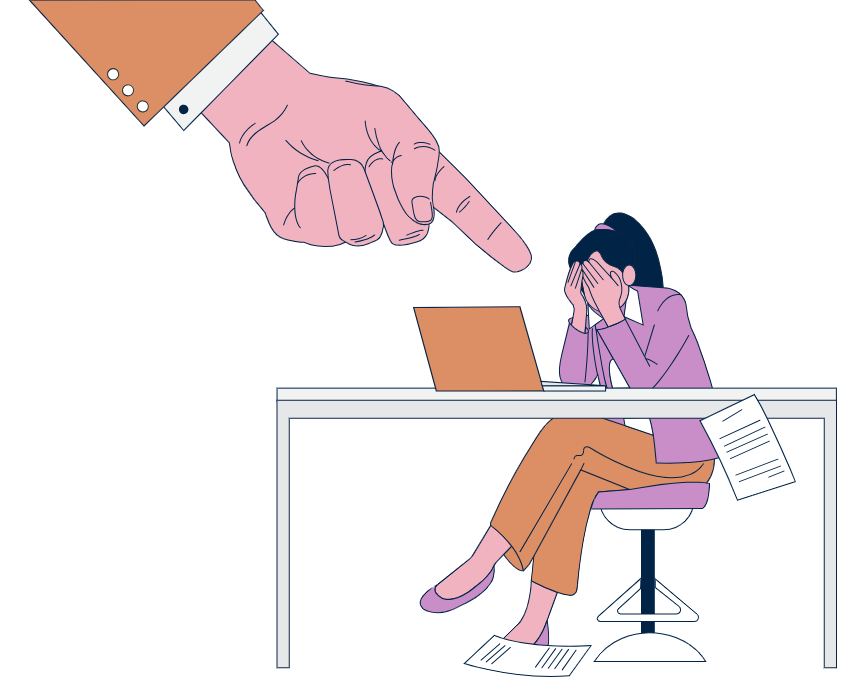Near the end of each year of residency, the residents received an ACGME survey regarding that academic year. This was a 1-5 Likert scale-based survey that ranged from topics such as duty hour violations, to racism, to bullying in the department. There were questions about weekly didactic lectures and clinical experience.
When I was a junior resident, our senior residents would have us take this survey in the resident office, under their direct supervision. The chief would walk between computers checking our responses and openly threatening us that any response less than a 5 (“Strongly agree! Things are very healthy and great here!”) would lead to more meetings, more paperwork, and more trouble for us. He promised that it would not actually change or help any of our working conditions.
By the time I was a senior resident, the residents got to take this survey in privacy. For a few years in a row, seemingly – or so it seemed to the department and Designated Institutional Official (DIO) – scores tanked out of nowhere! Isn’t that crazy? I vividly recall the subsequent DIO meeting in which that representative voiced their confusion – scores had been excellent (perfect even) for several preceding years. What changed?
People were finally starting to be more honest. There was rampant discrimination based on race, mental health, sex, you name it. The culture of fear and intimidation was pervasive and relentless. Anyone could see that, except maybe the DIO, who was still perplexed by the survey results.
After two consecutive years of low survey scores, the residents were informed that an ACGME investigation would be underway. Now, this is when the already-unpleasant working environment really got fun. On my rotation at the time, in between clinic patients the attending would tell me that the residents had “really messed up” this time. I was told that the residency would get shut down, we’d be unhireable – no one else would take on these residents – and essentially careers would be over. These comments were levied at several residents over the next stressful weeks. I had multiple junior residents ask me if I thought it was true that the program was going to be shut down. I told them that I didn’t know, though it seemed unlikely. There is so little (really, nothing) available on the subject, so how could we know with any accuracy what was going on? All we had to go off of were the threats and retaliation of attendings. The vibes were not great.
As a side note, a quick Google search will yield zero useful results when you look for anything around ‘Residency programs that have lost ACGME accreditation.’ ACGME releases data each year about the total number of programs that are credited, but never releases data about programs that have lost their accreditation or programs that are under investigation. It is a complete black box and shrouded in a veil of mystery. So just know that if you hear an attending speak authoritatively on the subject, they are full of shit.
When the time came for the departmental visit, we were told what was once an in person visit from the ACGME, would now be done over Zoom. A resident meeting was called and we were informed that the investigators would be on a Zoom call with all of us at once, for about 30 minutes, to collect information. We pointed out that that could be compromising – why wouldn’t we have the opportunity to speak privately with the investigators? In response to this line of questioning, we had individual Zoom meetings on the scheduled investigation date. This is a great illustration of the principle that you don’t get what you don’t ask for.
The results of the investigation were vague at best. But what I can tell you is that the program was not shut down. In fact during my call with the investigator, I asked if the program was in danger of being shut down, and was told, ‘definitely not.’ It was really not on the table at any point that it would be shut down. The attendings who were fear-mongering and retaliated against residents (>50% of the cohort, but of course in a small residency you’d know which majority it was) simply benefitted from the absence of investigation and did not want the headache. There was no truth to it.
I don’t claim to be an expert on ACGME policies and investigations but sharing even one account of this experience means that it’s 1% less shrouded in secrecy and threat. What did happen after the site visit, is that the culture started to change. Very minimally of course, but some of the worst offenders were now forced to act a bit differently. It became less acceptable to publicly abuse residents. So while everyone’s experience with the ACGME will obviously be different, just know that if there is legitimate reason to alert them about issues with your program, it’s probably worthwhile.

Leave a Reply